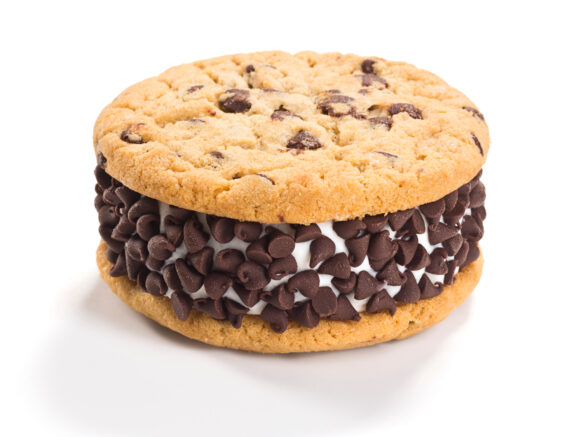The maker of Chipwich ice cream sandwiches is suing its insurance broker alleging the agency was negligent in failing to properly secure product recall insurance that would have helped it deal with what it claims is a $4.5 million loss stemming from a product recall.
Frozen food manufacturer Crave Better Foods of Greenwich, Connecticut, blames Carlson & Carlson, Inc. (C&C), an insurance broker in Riverside, Connecticut, for leaving it unprotected for a product recall of Chipwich products.
As a result of this recall, CBF claims it incurred more than $4.5 million in costs including destroyed inventory; costs of goods sold; excess freight charges; customer deductions; and lost sales. This does not include reputational harm caused to the Chipwich brand by the recall, according to the complaint filed in Connecticut Superior Court.
CBF accuses the insurance agency of professional negligence, breach of contract, and negligent misrepresentation over its alleged failure to recommend and procure sufficient insurance coverage, leaving CBF to bear the expensive consequences of the recall. The manufacturer argues that the agency had a duty to recommend to CBF and procure insurance against foreseeable risks of manufacturing food products that are distributed nationwide.
C&C last week moved to have the breach of contract claim stricken from the case on the grounds that it fails to state a legally cognizable claim. Although the breach of contract purports to assert a cause of action for breach of contract against the insurance agency, C&C maintains that count should be stricken as it fails to allege that C&C breached an agreement “for a specific result,” which C&C told the court is required for a legally sufficient breach of contract claim against an insurance agent or broker under Connecticut law.
CBF acquired the Chipwich trademark in 2017 years after the product was discontinued and began the process of re-launching Chipwiches into stores.
According to the original complaint filed by CBF on March 5, C&C procured a general liability insurance policy on behalf of CBF with coverage and premiums based on an estimated $100,000 in sales. The policy contained an exclusion for liability based upon product recalls. In June 2018, when its revenue was $800,00, CBF advised C&C that it “does not want Product Recall right now.”
However, according to the complaint, as the company began manufacturing at facilities nationwide, acquired several competitors, and expanded into other markets, there were no follow-up communications to indicate that the insurance agency sought or obtained a quote for product recall coverage or informed CBF the coverage was necessary.
By the end of 2021, CBF said its sales exceeded $4.2 million, resulting in a large increase in its insurance premiums. By the end of 2023, CBF had annual sales revenue of $24.4 million.
CBF maintains that C&C never audited the co-packing arrangements or reviewed the insurance provided by the co- packers. The company also alleges that the agency never asked to review any safety and quality programs.
Despite CBF’s increase in sales, the complaint maintains that C&C never circled back on the issue of recall insurance, never pointed out that CBFs’ general liability policy contained a product recall exclusion, and never secured recall insurance on CBF’s behalf, “despite the fact that recall insurance is generally recognized as a basic necessity for manufacturers of food products.”
On more than one occasion, CBF says it emailed C&C about consumers complaining that Chipwich sandwiches made them ill, hoping to learn how to protect themselves from such claims.
CBF maintains that it became aware of the gap in its coverage only when it was too late. CBF leased a manufacturing facility in Maryland owed by Totally Cool, Inc. and where CBF had equipment and inventory it says was worth more than a million dollars. On June 24, 2024, Totally Cool discovered that certain products in its line of ice cream cakes may have become contaminated with listeria monocytogenes after the U.S. Food and Drug Administration conducted sampling. Totally Cool immediately initiated a recall of its ice cream products including products from brands such as Hershey’s, Friendly’s, and Jeni’s. The recall also included Chipwich products.
None of CBF’s equipment at the Maryland facility tested positive for listeria. Nevertheless, the recall resulted in the destruction of approximately $900,000 of Chipwich products in inventory within CBF’s control and over $1.2 million in product in its customer’s inventory and on shelves, according to the complaint.
C&C has not yet filed its answer. The complaint was filed in Superior Court for Fairfield but was moved in April to the Stamford court.
Topics Agencies Profit Loss
Was this article valuable?
Here are more articles you may enjoy.



 Judge Tosses Buffalo Wild Wings Lawsuit That Has ‘No Meat on Its Bones’
Judge Tosses Buffalo Wild Wings Lawsuit That Has ‘No Meat on Its Bones’  Fla. Commissioner Offers Major Changes to Citizens’ Commercial Clearinghouse Plan
Fla. Commissioner Offers Major Changes to Citizens’ Commercial Clearinghouse Plan  Preparing for an AI Native Future
Preparing for an AI Native Future  Florida Regulators Crack the Whip on Auto Warranty Firm, Fake Certificates of Insurance
Florida Regulators Crack the Whip on Auto Warranty Firm, Fake Certificates of Insurance 

